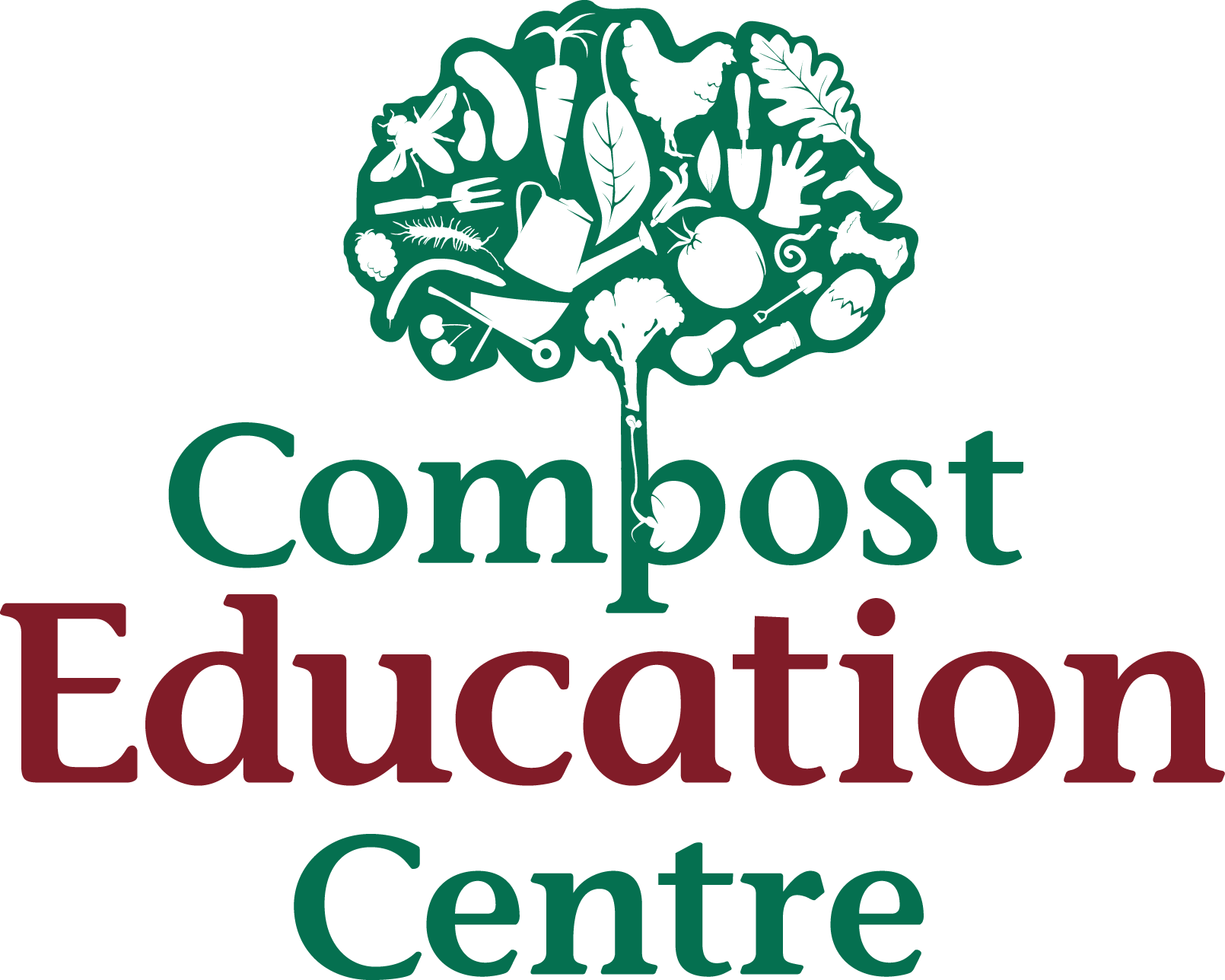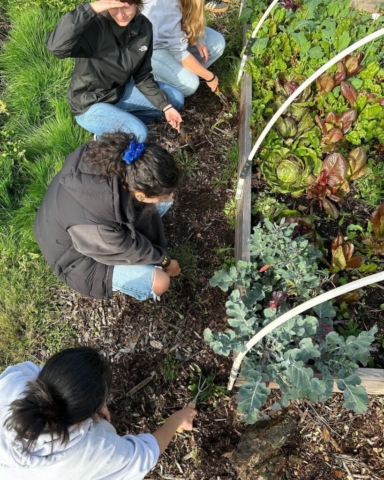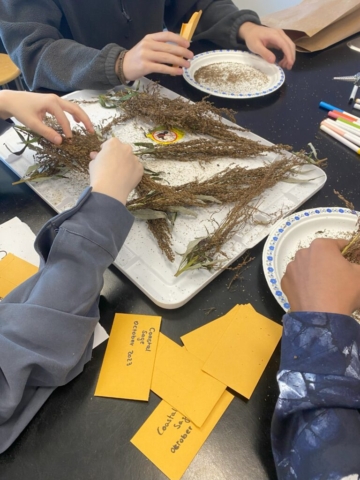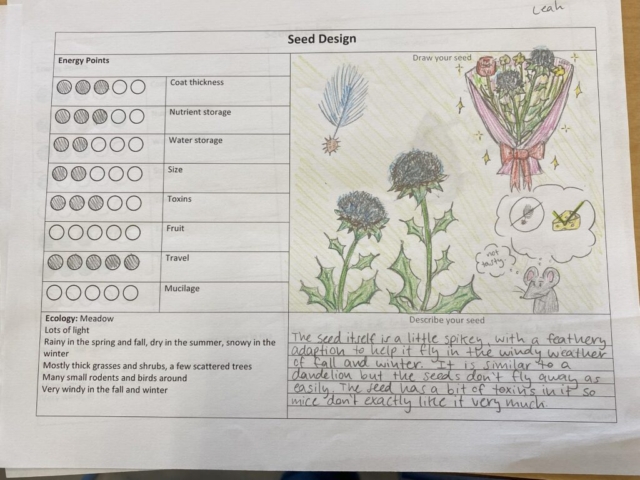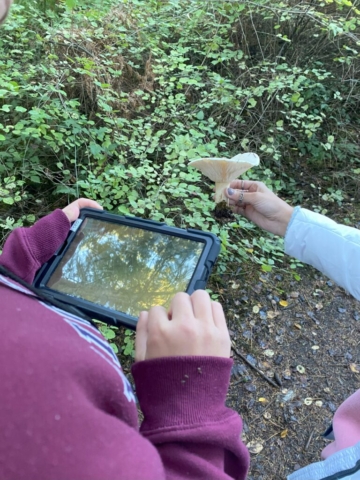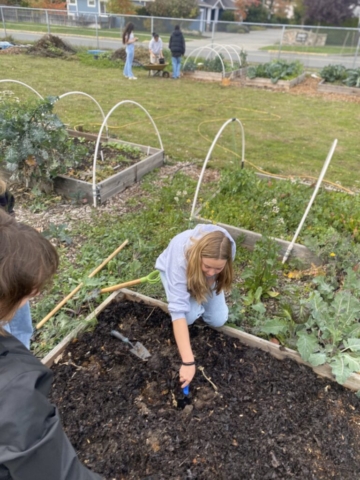Let’s Make It Rot – Together
January 1, 2024
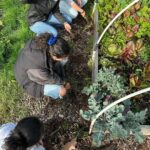
The Compost Education Centre launched Let It Rot! (LIR) in collaboration with a group of students at SJ Burnside Alternative Secondary School (SJ Burnside). LIR is an experiential learning program through which high school-aged youth acquire skills and knowledge on topics including composting, waste reduction, soil science, permaculture, and ecological stewardship. Now in its third year of operation, Elora Adamson, the CEC’s Child and Youth Education Program Manager, delivers lessons weekly to two cohorts of students at SJ Burnside and Mount Douglas Secondary School (Mount Doug).
We had launched the program because we had received feedback from student learners and teachers that teens need longer periods of time and relationship-building to more fulsomely connect with the resources that the Compost Ed Centre offers. We heard that students want to get their hands dirty, apply knowledge and skills in a tangible way, and build community around the intersection of food and climate justice. I’ve been so excited to see how Elora manages this program in a way that has had rippling effects. For example, upon graduating from SJ Burnside, an LIR alumni immediately found employment in the food security and food waste sector, which she was inspired to seek out after her experience in the program.
It is clear that LIR has deep impact on the participant students and their communities. Earlier this year, we started to wonder about all the other student communities at the nine other secondary schools in School District 61. How can we scale up our engagement of youth in gardening, composting, and conservation activities in educational gardens? Educational gardens are powerful outdoor learning environments for fostering climate action. How can we effect more climate change mitigation and adaptation by growing our Let It Rot! community?
To answer these questions, we started talking to longstanding food security organizations like CRFAIR, exciting new initiatives like Flourish School Food Society, long-time friends like Lifecycles, passionate teachers like Annalee Tyler at Reynolds Secondary School, and progressive funders like the Victoria Foundation. What we found is that we all care about transforming disconnected youth into engaged stewards of our world – and that there is an opportunity to progress towards greater collaboration and integration. By aligning our program delivery and participating in ongoing strategic discussions, we can focus more on impact and less on duplicating efforts with regards to funding, community focus, and capacity.
With the generous support of the Victoria Foundation, we’ve started exploring these questions and implementing strong collaborative practices. The latest (and so exciting!) update is that the Compost Ed Centre and Flourish have co-hired a garden coordinator to manage multiple school garden spaces. It’s exciting to think that we’ve managed to avoid some redundant administrative work and pool resources together to create a new job in the food literacy sector.
We aspire to connect students first to local natural processes and then second to big ideas like climate change. By demonstrating hands-on, regionally specific, and solution-driven practices through our educational approach, we try to reconnect youth to land and nature in a meaningful and productive way. By educating youth about the importance of sustainable agricultural systems, the science of compost, the benefits of native plants, and the importance of waste reduction and conservation, we are equipping them with the skills and knowledge needed to build healthy communities with resilient local food systems.
We are so grateful to find ourselves in community with a growing number passionate student learners, dedicated teachers, and nimble organizations. We’re looking forward to even more!
By Claire Remington, Executive Director
Posted in Uncategorized